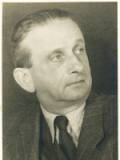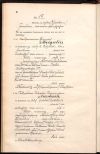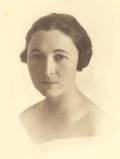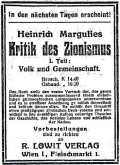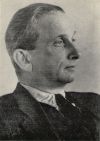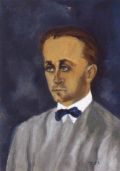Heinrich Margulies (1890-1989)
Birth
1890, 2 July, Sosnowiec, Russian-Poland
(Ober Schlesien/Upper Silesia, at that time part of the Russian-Poland area).
Parents
Father: Moritz Margulies
Mother: Clara Sussman
Siblings
1869 Anna Margulies
1871 Isidor Margulies
18?? Julius Margulies
18?? Siegmund Margulies
1876 Isabella Margulies
1877 Emil Margulies
1889 Hans Margulies
1890 [Self]
Marriage
2) 19?? Anne Stern
Children
[Private]
Death
1989 Kiriat Tivon, Israel
Biographical Notes and Snippets…
Heinrich Margulies was born in Sosnowice. In 1895 the family moved to Kattowice. He went to the Oberrealschule here, along with Arnold Zweig.Studied in Leipzig and Berlin and became an economist. He was also an editor for the "Wiener Morgenzeitung". In 1925 he emigrated to Palestine, where he became a Director of the Anglo-Palestine Bank. [1][2]
Zionist publicist; studied in Berlin and Leipzig; 1919 Editor for the "Jüdisch Jugendblätter" Editor for the "Wiener Morgenzeitung" since 1919; Factory director in Berlin and Bank Director; 1925 emigration to Palestine; Change of name to MARGALIT; Director of the Bank Leumi Lejisrael [Anglo-Palestine Bank]; moved to Kiriat Tivon; Since 1956 scientific works, including studies of the old-semitic [altsemitisch] and sumeric cultures; Publications [see below] [8, Footnote 175].I'm not sure about these references to the Wiener Morgenzeitung: most sources (i.e. those I've seen so far) only mention his brother Isidor. But the reference to the "Jüdisch Jugendblätter" is also repeated here[8, Footnote 153].
Heinrich seems to have sparked off several controversies. Here two examples:
In 1915 ...
Other warmongering german Zionists like Heinrich Margulies published articles in Jüdischen Rundschau published articles with inflammatory titles like "Der Krieg und die Zurückgebliebenen" oder "Wir und der Krieg". [...] Gershom Scholem and 15 members of the wrote an angry letter to the editors objecting to the war. The letter was also signed by 15 members of the "Jung-Juda" associated, but it wasn't published, and the president of the Zionistischen Vereinigung Deutschlands, Arthur Hantke, reprimanded Scholem and two others as he feared that if the letter were to be published, then the Vereinigung could be banned for unpatriotic behaviour.[6]
In May 1918 the german philosopher Martin Buber gave a talk at the "Jüdischen Jugendtag" (Jewish Youth Conference) in the Vienna. Heinrich spoke out against some of Buber's ideas:
Although I didn't find his speech - or indeed the figure of this Heinrich Margulies - particulary sympathetic, in my opinion his objection does have some merit.[6]
The second general speaker, Mr. Heinz [!] Margulies, tried to counter Dr. [Robert] Weltsch's remarks and made polemic comments about Buber's influence in the jewish Youth Movement, as his misunderstood ideas could lead to a really bad outcome. [6, Footnote 175]
... Heinrich Margulies, whose article caused Scholem's first anti-war activity, turned against his mentor at a youth conference after the war. Margulies accused Buber of "spiritualizing" Zionism (Vergeistung des Zionismus), presumably by ignoring the need for a concrete program of emigration to Palestine.[8]
Memo to self: Expand the controversies.
In 2011 Vera Regine Röhl contacted me through the website. She had found this website in the course of her researches for her dissertation on Heinrich Margilies. In 2014 she published her dissertation as a book:
"Es gibt kein Himmelreich auf Erden", Heinrich Margulies - ein sekulär Zionist [9]
Vera has provided me (in e-mails and through her book) more details of Heinrich's life, which now appear here on the website. If you can read german, then I can recommend that you read this book for a very detailed account of the above mentioned controversies.After obtaining his "Abitur" (secondary school diploma / UK eqivalent : 'A' levels) he worked for the Bresaluer Diskontbank and then studied in Leipzig. But after nearly a year there, he had to break off his studies in 1910 (perhaps his father couldn't finance them anymore ? [9, p.43] and he returned to Breslau, to work for the Bank.
In 1913 he then moved to Berlin.
Damals war Margulies Vorstandsmitglied und stellvertretender General Direktor der Engelhard-Brauerei in Berlin gewesen und wurde im Laufe des Jahres 1923 von seinem Arbeitgeber nach Mailand geschickt, [...] 1923. [9, s.273]
~~~~~~~~~~~~~~~~~~~~~~~~~~~~~~~
At that time Margulies was a board member and assistent general manager of the Engelhard Brewery in Berlin and in 1923 he was sent by his employers to Milan [...].
Memo to self: what happened (professionally) from 1913 to 1923 ?
He was called up in 1916.
Memo to self: War-time experiences ?
In 1923 he was appointed managing director ("Consiegliere Delegato") of the "Societa per l'Indistria Birraria", a Berlin-Vienna subsidiary of the Engelhardt-Brauerei. In 1925 he was already planning to emigrate to Israel, hoping to work for the Anglo-Palestine-Company, later Anglo-Palestine Bank (A.P.B. In 1948 this became the Israel National Bank, the Bank Leumi leIsrael). He finally managed to get a visa in September 1925, with Nanni and his three children following him in December 1925. [9, s.273f]
After the war he was sent on research trip to the USA. Here he spent several months studying methods for financing small and medium sized industrial firms and operations.
In 1953 he was the appointed to Economics and Financial Counsellor for three years to the Israeli Embassy in London.
My Dad remembers, that when we lived in Bristol, on Hartcliffe housing estate a big limousine with CD plates and flying the Israeli flag came to the estate. It was Heinrich, who then took My Dad and My Mum to London for the week (-end ?) where they stayed as his guests in the Savoy.
(On reflection: this may just have been a visit to a restaurant in Bristol. My Dad's memory or his view of things wasn't always reliable !)
On returning to Israel in 1956, he resigned from his activities in the financial world, to concentrate on his literary achievements.
The youngest brother, Heinrich, was already influenced by his two older brothers in the zionist Youth Movement, where he excelled. As a young man he published a two-volume "Critique of Zionism" and emmigrated soon after World War I to Erez Israel, where he has become a leading economist. Although he has attained an important position in his contry's financial economy -- he is one of the directors of the Anglo-Palestine Bank Ltd. -- he is often enticed back to his literature and architectural studies. He recently published with "Dwir", Tel Aviv, an interesting piece of archeological research "Paroh schebijmej Josef" (Joseph's Pharoah), under the pseudonym of H. Owadjy. [3]
According to My Dad, Minna had a photograph entitled "Founders of Israel" (or something similar) and either Emil or Heinrich was in this photo. Judging by his work for the Israeli government, this was most likely to have been Heinrich.
See also the Margulies Family History, Moritz Margulies and Clara Sussman
Heinrich was a very prolific writer. In the catalogue[4] of the Central Zionist Archives (CZA), Jerusalem he is listed with 4.2 (!) runnings metres of archived material. In comparison: his brother Emil is listed with 0.2 metres.
In a private conversation with Vera Röhl, his son Othniel jokingly described Heinrich as a "Scriptoman" and a "Schreibteufel".[9, p.17]
Some of his most well known* works are:
- Der Kampf zwischen Suez and Baghdad im Altertum, 1916
- Kritik des Zionismus. 1920
- Der Pharao Joseph, 1963
* (i.e. those most often referenced in an internet search)
References:
- Kurzbiographien zur Geschichte der Juden 1918-1845, K.G.Sauer Verlag, München, 1988
- Jüdisches Lexikon, 1927
- Dr. Emil Margulies, Ein Lebenskampf für Wahrheit und Recht, Faerber, 1949, Tel Aviv
- Guide to the archival record groups and collections, Central Zionist Archives, 2003
(available on the internet as a PDF-file ) - Wien und die jüdische Erfahrung 1900-1938, Frank Stern, Barbara Eichinger, 2009, ...
- Chanukka und der Zionismus in Deutschland , Klaus Davidowicz, in DAVID - Heft Nr. 75 - Dezember 2007
- Eugen Hoeflich (Moshe Ya'akov Ben-Gavriêl), Tagebücher 1915-1927, Böhlau Verlag, Wien, 1999
- Gershom Scholem: Kabbalah and Counter-History, David Biale, Harvard University Press, 1982
(Exerpts avaialble on the internet) - Vera Regine Röhl: "Es gibt kein Himmelreich auf Erden" - Heinrich Margulies - ein säkularer Zionist.
Königshausen und Neumann, Würzburg 2014
Oral History
Internet research
Biographical notes from one of his books
